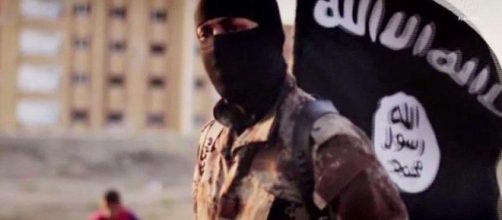All too often the Western countries do not understand the Islam is not a single, overpowering religion with one and a half billion people sharing common beliefs and practices. It is a bee hive of different sects and beliefs which share a common founder and basic beliefs and practices, but there major cultural and theological differences which President #Donald Trump and Secretary of State Rex Tillerson must consider when confronting the fanatics. Asia is one of the fields where these differences will be most felt.
Bombing
The bombing of a Sufi shrine dedicated to Lal Shahbaz Qalandar, a Sufi saint at Hyderabad in Pakistan with over a hundred deaths is only the latest of innumerable terrorist attacks between different interpretations of Islam around the world.
The Sufis who suffered in this attack are constant targets for those who interpret the Koran in a very strict fashion and their singers have been victims of those fanatic groups which abhor music and other forms of “distractions” from the precepts of the Koran.
Iran
The best know division in Islam is that between the majority Sunnis and the minority Shiites which are led by Iran. This division as one of the contributing factors for the Iran-Iraq war between 1980 and 1988 which killed at least a million civilians and soldiers and left at least half a million invalids.
While the West was distracted by the ISIS films of the execution of Western prisoners, the fanatical group killed many, many more Moslems in their war against the heresies of those who do not follow their restricted and hate filled version of Islam.
Africa and Asia
Terrorist attacks in Africa and Asia are battles in these religious divisions and must be considered as such. Any Western attempt to resolve the fanaticism and its terrorists must include all the major Moslem countries as they are all potential targets for attack, as we have seen constantly over the years.
Algeria, Morocco, Indonesia and Malaysia are countries that have suffered incidents, but are also countries which could play major roles in coordinating the Moslem countries to fight together against the religious fanatics. Without forgetting that China too has an important Moslem minority.
Oil and other resources
Complicating this situation will undoubtedly be the individual political and diplomatic agendas of these countries.
At risk are not only theological differences between the sects and other groups, at stake are also natural resources such as oil which fund the exorbitant life style of super rich minorities in many countries, beginning with those of the Arab States.
In fact, the huge differences between the rich and the poor in Moslem countries must be addressed and resolved as they fuel the hatred between the sects.
Yet these resources are not eternal and few of the oil rich States are preparing for the day when the oil will no longer be able to pay the costs of the super opulent lifestyle of the privileged classes. That day may well become the beginning of a bloodbath that will go down in history.
Diplomacy
As they confront these situations Donald Trump and Secretary Tillerson will soon discover that Theodore Roosevelt’s advice to “speak softly, but carry a big stick” is excellent advice for unravelling a situation that is killing people every day in some part of the world.
In the world of diplomacy “talking tough” is never the solution and all too often the beginning of even worse problems. One thing that they must remember is that while religion will be part of the solution, it cannot be theirs. The only true solution must come from the other Moslems because they are the ones most at risk from the Islamic terrorism.

